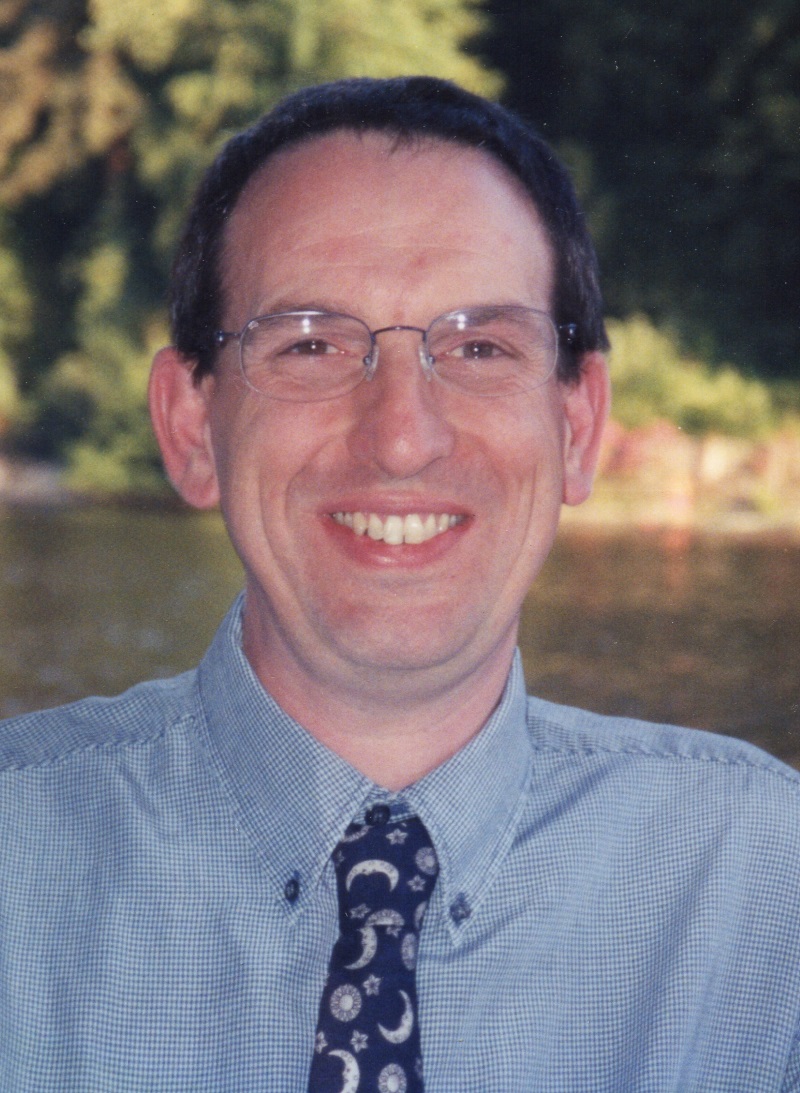Mike is a Professor of Space Environment Physics at the University of Reading, and we asked him a few questions about his background and experience with the journal.

Tell us about your background
I was born at the tail-end of the post-WW2 baby-boom. My father had won a civil service commission to escape a life in the Yorkshire mills and had risen to an officer in the Indian army. Upset by what he had seen at the end of the war, he volunteered to join the British delegation that helped re-establish the economy in Germany and that is where I grew up. My mother had been a high-flier in the civil service but fell victim to asthma just as I was born. Wrongly diagnosed as TB, she was put in an isolation hospital and so for my first 18 months, I lived with Dad’s parents in Holmfirth. Apart from my parents, there were two huge influences on me: my wonderful sister Sue who was an extraordinary mentor and motivator, and my Physics teacher at secondary school, a charismatic man called Len Goldsmith. Len inspired me to do what I now do and Sue gave me the belief that I could do it. I gained a first in Physics and then a PhD (in radiowave propagation) from Exeter University. After a post-doc in New Zealand, a brief spell at the Royal Aircraft Establishment, and a year at NASA’s Marshall Space Flight Center, I worked for many years in the excellent environment of the Rutherford Appleton Laboratory, on the EISCAT radar project to study the aurora and several satellite missions such as AMPTE-UKS. I eventually served as the Chairman of EISCAT’s governing Council at a time when we built a new radar on Spitzbergen in the Arctic. I was a Professor at the University of Southampton before moving to Reading, where I established a new group of exciting young scientists working on all aspects of the near-Earth space environment.
What has been the highlight of your career so far?
I’d like to pick a piece of my scientific work – but it wouldn’t be honest. It has to be becoming a Fellow of the Royal Society. I would have so enjoyed my Dad being there that day; he’d have been in his element with his huge admiration for talent and achievement and his extraordinary ability to talk to people and work any room. Sadly, he died just before I was elected, but he knew I had been nominated and — not really understanding what a rare honour it is—he was totally certain that it would happen.
That having been said, there is a key “Eureka” moment that happened in a rather amusing way. We had been working on understanding the long-term rise in geomagnetic activity and had made progress but there was one missing element. So I settled down into the library one mid-afternoon to survey the literature. About 9 hours later, at 2 in the morning, I came across a paper describing data from the Ulysses spacecraft showing so exactly what I needed that I decided I must be over-tired and had started hallucinating! I marked the paper with a post-it note, returned the volume to the shelf and drove home. The next day I went back to find that it was real. That led to a letter in Nature and opened up a field in which we are still making discoveries some 20 years later. Just sometimes, things are not too good to be true.
Are there any common misconceptions about your area of research that you would like to debunk?
Many people know that solar output powers our climate system and so they believe that changes in solar output cause the changes in our global climate. Solar variability does have effects but they really are minor compared to the effects of Earth’s orbital changes, greenhouse gases, land use, and volcanoes. This is important because it is a misconception that is repeatedly (and I have to say wilfully) dragged up to justify no action, or even retrograde action, on climate change. Humankind simply does not have the time left to do that anymore.
What are you most looking forward to in your new role as Editor of Proceedings A?
Learning. I have a habit of treating everything as a personal tutorial. Not always a good trait but it gives me a genuine enthusiasm. I love new ideas, new techniques, new discoveries, new engineering, and new possibilities. I am really looking forward to being part of the means of getting them “out there” where they can do good. I once spent a freezing cold winter afternoon, kneeling on the floor of Daisen-in Zen Buddist temple in Kyoto, having ceremonial tea with the head priest. After asking questions and listening to me talk for good while he said “I have something for you” and gave me a handwritten poem of his – the opening line of which translates as “Every day is training, training for myself”. He said that for me it would never stop. My long-suffering wife agrees; she says that living with me is like living with someone who is perpetually taking exams.
What was your previous experience with Proceedings A?
Invariably good! Helpful reviews, help from the Society on publishing and publicity, ensuring interest in the papers from a wide spectrum of scientists.
What advice would you give to potential authors of Proceedings A?
Be brave enough to branch away from specialist journals. You can always email a Proc A paper to members of your own field if needed. A generalist science and engineering journal like Proc. A will take your work to new audiences.
Why should researchers review for Proceedings A?
It is a chance to learn something valuable. Being a good reviewer is good for the soul and good for the mind.
During your career, what is the best piece of advice you’ve ever been given?
I was lucky enough to go to lectures by, and later meet, Richard Feynman, when he came to Auckland while I was a post-doc there. He was an extraordinarily charismatic lecturer and took a genuine interest in my work, which I summarised by saying “so this fits but this doesn’t”. He said “follow the bit that doesn’t work, young man – that is always the interesting bit”. I still pass that on to my students.
Find out more about Mike Lockwood’s aims for the journal in his Editorial.



